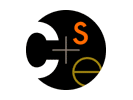|
|
|

|
|
Course Overview
|
|
|
This course addresses a broad
spectrum of issues in computer security and privacy,
ranging from cryptography, to systems security, to network security,
to usable security.
We will explore fundamental challenges in the design and
analysis of computer systems that must remain dependable
despite the actions of adversaries.
The goal of this course is to help you learn how to
think about, evaluate, and understand computer security issues.
back to
top
|
|
Grades will be assigned as follows:
- Projects: 40%
- Homeworks: 20%
- Textbook-style questions: 10%
- Security evaluations: 10%
- Midterm: 10%
- Final: 30%
You must sign and return the Security and Privacy Code of Ethics form by the start of class on April 3 (Tuesday) in order to receive a non-zero grade for this course.
To check your grades on your MyUW page:
-
Go to http://myuw.washington.edu.
-
Login with your UW NetID
(this is not the same as your CSE NetID in general).
-
At the top of your MyUW page, click "Change Content".
-
On the next page, click "Browse & Choose".
-
On the next page, check the box next to the CSE channel and click "Save".
-
Finally, reload your front page again, and you should see your 490K
grades in a new box.
You might also be able to view your grades at https://norfolk.cs.washington.edu/mycse.
back to
top
|
|
There will be
one midterm exam and a final exam for this course:
- Midterm : May 3, in class
- Final : June 7, 10:30am - 12:20pm, EEB 003
back to
top
|
|
There will be four kinds of
homework
assignments given throughout the class:
- Reading: You will be
given reading
assignments associated with each lecture. You
should finish the reading before coming to the lecture -- I will
assume you've done this reading, and my lectures will enhance the
material, rather than regurgitate it.
- Textbook-style questions:
I will assign written homework based on either questions
from the text, or made-up questions.
These assignments should be
handed in at the start of class on the due date.
(Make sure you read
the late policy below.)
- Security evaluations:
With a few exceptions, each week you will get the opportunity
to briefly evaluate the security of a real product of your
choice.
You should hand in your evaluation of these products at the
start of class
on the due date.
(Make sure you read the late policy below.
If you choose to turn in your evaluation late, then you must
evaluate something publicly discussed/announced on the web
after the due
date. This is because we will sometimes discuss these evaluations
in class.)
- Extra-credit:
From time to time, I may pose a question or give a programming
assignment that is purely extra credit. I may award extra credit
for outstanding contributions to the in-class discussions.
I may also award extra credit to people contributing greatly to the
course email list.
back to top
|
|
As you've probably guessed
from
the allocation of grades, programming projects will be a major portion
of this class.
These programming projects will give you an opportunity to explore computer
security first hand.
At least one project will involve mounting buffer overflow attacks against
real C programs, so you should be deeply familar with C, assembly language,
and standard Unix command line development tools (like gdb).
Full details forthcoming.
back to
top
|
|
(Many of these policies are
taken
verbatim from previous instances of other UW CSE courses.)
|
|
back to
top
|
|


 CSE Home
CSE Home  About Us
About Us Search
Search Contact Info
Contact Info